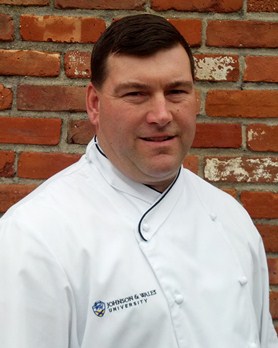Green Tomato: Sustainable Culinary Arts
31 March 2012
 A combination high school, urban farm and environmental education center in Connecticut is leading the way as a model in healthy lifestyles for students from all socioeconomic backgrounds.
A combination high school, urban farm and environmental education center in Connecticut is leading the way as a model in healthy lifestyles for students from all socioeconomic backgrounds.
By Morgan Wotherspoon
For decades now, the idea of sustainable agriculture has been gaining momentum. Our country is looking for better ways to grow our food and eat healthy. Sustainable agriculture is a method of growing and raising food that is healthy for consumers and animals, is more in tune with the environment, humane for workers, respects animals, provides a fair wage to the farmer, and supports and enhances rural communities. (Visit www.sustainabletable.org for more.)
Common Ground High School, Urban Farm and Environmental Education Center are taking this concept to the next level. This charter school in New Haven, Conn., is integrating sustainable farming, culinary arts and its school-lunch program. It’s a unique model for the future of high-school culinary-arts programs.
The urban farm is designed to keep the distance between seed to table short. Last season the urban farm produced 5,000 pounds of food in a 1-acre garden. It produced 43 varieties of vegetables including many heirloom varieties and all grown using organic practices. Some of the vegetables include tomatoes, garlic, kale, potatoes, carrots and squash. These products are stretched further by making tomato sauce, pesto and other preserved goods. The farm also raised 30 chickens, five ducks, two pigs, two goats, five turkeys, one rabbit and one sheep. The biggest challenge for the farm is aligning a New England harvest schedule with the school calendar to ensure the best food possible for the students.
All Common Ground High School students eat a free lunch provided through the farm, and many help prepare and serve these meals through the new commercial kitchen and the efforts of chef and culinary educator Rhonda Deloatch. She cultivates valuable knowledge about healthy living and sustainable agriculture by getting to know the students, earning their trust and making them feel comfortable.
I have had the pleasure of talking with Rhonda about her unique program and how it all works. She built the program literally from scratch and with no guidance from the previous cook. Through research and dedication to her craft, she built a fantastic farm-to-table high-school model that is working to provide a healthy school lunch program that grew from 60 to 120 students a day. When she took over the program, 70% of the food came from a foodservice company, and the kids hated it. Her first goal was to minimize and eventually eliminate the foodservice products. The keys to this program are gaining trust from the students and making food that tastes good.
Rhonda revamped the tired menu with healthy alternatives and was met with a lot of dissent at first. But the students did come around. She substituted beef with poultry. One example that she gave me was her Southwest turkey burgers. She put a slice of bacon on them with a teaspoon of barbecue sauce, a sprinkle of spice mix, garlic powder, pepper, a bit of chile powder and provolone cheese on a whole-wheat bun. Students loved them! The next time she made this recipe, she removed the bacon, and only a few students asked about the bacon. She still serves them today. Another great idea to expand students’ pallets is the use of samples. She told me that students will try anything if they are curious.
As a culinary educator, Rhonda is dedicated to teaching her students where food really comes from. This approach has earned her the trust of her inner-city students. These students are now willing to prepare and eat new foods that are healthier and more nutritious. The key to this successful kitchen is Rhonda’s relationship with the new garden manager, who is really enthusiastic and dedicated to sustainable agriculture. Last year was the best ever farm-to-table collaboration between the urban farm and the high school. It has also reduced the bottom-line budget by reducing the distance the food travels.
This flagship program is leading the way in healthy lifestyles for students from all socioeconomic backgrounds. Common Ground students study culinary arts, take courses in nutrition and healthy lifestyle, help prepare meals and make school lunch fun through a hands-on approach to student wellness. To learn more about Common Ground, visit http://www.nhep.com.
Morgan Wotherspoon is a candidate in the Master of Arts in Teaching (MAT) program at Johnson & Wales University, Providence, R.I.
Additional Info
- CAFÉ Talks Podcast Lesson Plan: 1



